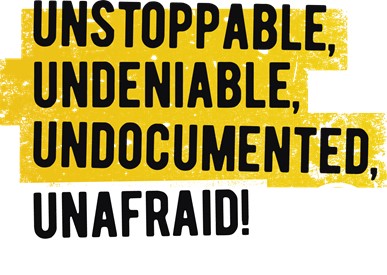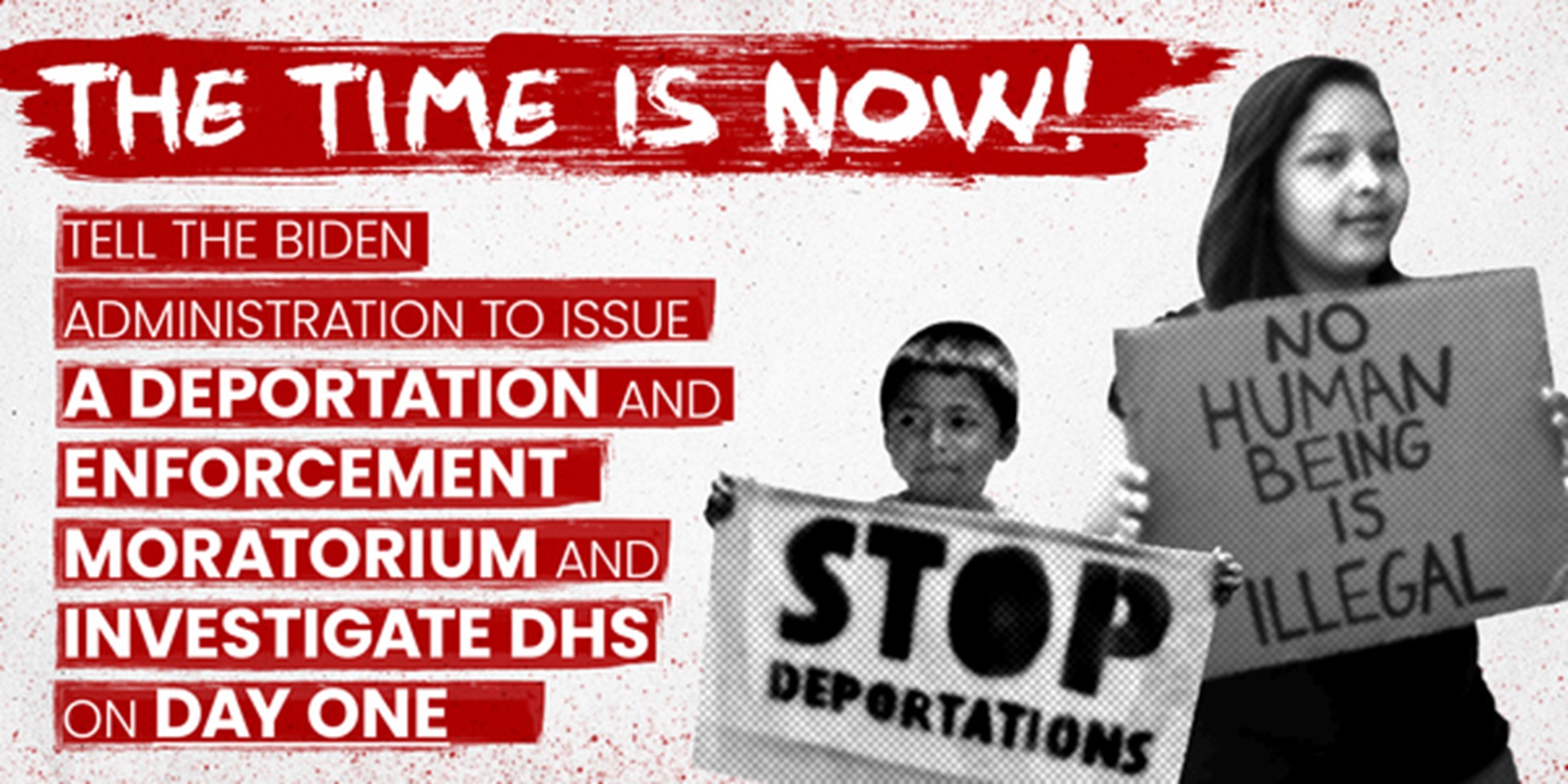|
|
|
|
The weekly newsletter of the México Solidarity Project |
|
|
|
February 3, 2021/ This week's issue/ Meizhu Lui, for the editorial team |
|
|
Staying Power |
|
Home. Where do we find it? In the land, in the life cycle of the plants and animals we live among? In the voices of our ancestors whose spirits still surround and guide us? In the vibrancy of our culture, the excitement of our city? In the priceless embrace of our family? No wonder most of us want to stay home!
But sometimes powers from far away disrupt our comfort and safety. A war — like the US-Mexican war — turns our home in México into a US home, where we live as the conquered. In what remains México, a government that serves “development” takes our lands and puts them into the hands of foreigners and wealthy businessmen. Trade agreements negotiated in faraway places make our farms obsolete. We cannot stay.
In the new country, we try to remake “home.” We even grow to love new landscapes, new neighbors and friends, new work. We have children. Our children know no other home. We want to stay. But we cannot stay. The powerful call us criminals just for being here. So we stay in the shadows. We live in fear — of losing our jobs, of the police, of getting deported.
Enough. No more. No one can deny families a home. In spite of the odds, the repression, people in México and Mexicanos in the US are raising their heads, their voices, their fists. They’re growing their clout, using any tools they can find — or invent — to demand basic rights. They’re showing they can win.
Yes, activists in groups like Mijente may be tired from the fight to defeat Donald Trump, but they understand the movement must keep stepping up. We need staying power to win the right to stay — in whichever country we call home. |
|
|
On Day One of his new administration, President Joe Biden announced two long-awaited immigration measures. He halted deportations and proposed a path to citizenship for migrants living in the United States. Several days later, Mijente senior campaign organizer Jacinda Gonzalez discussed Biden’s two new initiatives. We have the main takeaways from her comments. You can watch her full analysis online. |
|
|
Mijente and its allies demanded that Democratic Party presidential candidates pledge to issue an order to stop all deportations, for 100 days, on Day One of their term. What made that demand — and the responses to it — most significant?
We’ve succeeded in putting the deportation issue into a larger frame. It’s not about “good” vs. “bad” immigrants. It’s not just about children in cages, or just about Dreamers brought to the US as children. All undocumented people should be included in the moratorium. We will not be divided. Bernie Sanders was the first to agree with us, and he helped us negotiate with the Biden campaign. And on Day One, Biden kept his promise, signaling his commitment to immigration reform.
So people with criminal records will also be protected from deportation?
Yes! This was an important victory, since arrest and conviction comes easy when you’re a Latinx immigrant. But the order does have a scary exception: No “aggravated felons” — such as terrorists and spies — will be protected. Immigration and Customs Enforcement, better known as ICE, has too much discretion in defining what “aggravated” means. “Aggravated” could be a minor offense like shoplifting! We’ll have to keep a close watch on that.
The moratorium on deportations needs to be just a start. We have to rescind ICE’s 287(g), the policy that gives state and local police the authority to “identify and remove" immigrants. That’s not their jurisdiction. And the federal Operation Streamline criminalizes people trying to cross the border and tries them en masse in criminal courts, instead of moving people through the usual civil immigration system.
Most of all, we need to defund ICE. Just like other police forces, its budget has ballooned, and all that money would be better spent on social services that make communities safer.
The Texas attorney general just secured an injunction against the moratorium in his state. What happens now?
The far right has moved its guns to the state level, a not unexpected setback. The halt to deportations will now not start for 14 more days. We’ll have to fight every deportation, and many grassroots groups in Texas will do just that.
Biden also provided a blueprint for a path to citizenship. Is immigration reform finally in sight?
Biden’s proposal offers a starting point to get to a new immigration law, something promised by administration after administration. Senator Menendez is going to be introducing a reform bill, but this will be just the first step in the legislative process that could take several years.
Biden is promising “a different approach.” Unfortunately, we’re worried at his suggestion that instead of building a wall, he’ll beef up surveillance to “monitor the border.” This smacks of the old paradigm of making a trade-off between citizenship for those already here with tougher restrictions at the border.
What now for the immigrant rights movement? |
|
We have to make sure what we have won so far is just the floor. We have new initiatives: the We Are Home coalition, a “Defund Hate” campaign, a plan to use the budget process to cut funds to the Department of Homeland Security, and more. We’ve reached this far through a multiplicity of strategies: protests, electoral activism, forming coalitions, policy meetings, building alternatives. There are no guarantees that we will win. But if we don’t fight, it’s guaranteed that we will lose. The next 100 day will be an organizing sprint! |
|
|
|
Moving Biden Toward Community Demands |
|
Last July, after negotiations with Senator Bernie Sanders, the Biden campaign placed Mijente director Marisa Franco on the campaign’s “unity task force on immigration.” What did that task force accomplish? We excerpt here from Franco’s broader analysis of the Biden policy commitments that resulted from the task force’s deliberations.
Going into these task force negotiations, we knew we were going to have to push Biden past his comfort zone, both to reconcile with past offenses and to carve a new path forward. That is exactly what we did, unapologetically.
A Biden presidency will stand in stark contrast to Trump’s policies, starting with: • Establishing a 100-day moratorium on deportations that includes a full scale ICE audit. • Ending private detention. • Ending 287(g) and similar programs that force local law enforcement to take on the role of immigration enforcement. • Guaranteeing free health coverage to all people regardless of immigration or economic status during a public health crisis like COVID-19. • Retiring old slogans and solutions that have not served us and do not meet the moment.
For years, Mijente along with the broader immigrant rights movement has fought to reshape the narrative around immigration towards racial justice and to focus these very demands. We expect Biden and the Democratic Party to implement them in their entirety. There is no going back. Not an inch, not a step. We must only move forward from here. We will continue organizing. We will keep demanding an end to surveillance, an end to all immigrant detention, the abolition of ICE, and the defunding of police.
Mijente, a political, digital, and grassroots hub for Latino and Chicano organizing and movement building, launched in 2015. In 2016, we unseated one of the most racist sheriffs in the country with our campaign against Arizona Sheriff Joe Arpaio. After that, we endorsed and ran a campaign to elect Stacey Abrams for governor of Georgia. Our work in that race increased the Latino vote by 300 percent in 2018. We have a long history of grassroots organizing and movement building outside of the electoral sector and have become nationally recognized leaders in the immigrant rights movement. Check @conmijente or Mijente.net to join us. |
|
|
|
Recent news reports and commentaries, from progressive and mainstream media,
Samuel Gilbert, 2020 was deadliest year for migrants crossing unlawfully into US via Arizona, Guardian. Remains of 227 migrants surfaced last year, says Humane Borders. At least 7,000 have now died along the US-Mexico border since 1998.
Kevin Sieff, Separated at the border, reunited, then separated again: For migrant families, another trauma, Washington Post. Two and a half years after Donald Trump ordered an end to family separations, immigration attorneys and advocates are growing increasingly concerned about re-separations.
Emir Olivares Alonso, Ilusiona la iniciativa de Biden para regularizar situación migratoria, La Jornada. Specialistas auguran que no será fácil el proceso de aprobación de la iniciativa de Biden por parte del Congreso.
Belén Fernández, AMLO Hasn’t Done Enough to Address Mexico’s Gender-Based Violence Epidemic, Jacobin. The initial spike in femicides took place on the watch of right-wing president Peña Nieto. But the trend has continued under López Obrador, despite his decrying of machismo.
Lois Danks, Mexican Women Fight to Stop Femicide, LA Progressive. Protests have increased in size and fury since the “Day Without Women” general strike in March 2020.
The Evolving México-United States Relationship, Amid a New Administration in Washington, National Law Review. The Biden Administration may reverse Trump support for gas pipeline projects in México.
Stefanie Eschenbacher and Adriana Barrera, 'Wear a mask': Mexicans urge president to follow rules after COVID-19 setback, Reuters. Many believe AMLO could have avoided infection if he had more strictly followed the government’s own health advice and worn a face mask.
Bodie Kellogg, In Mexico, cartels and trash move pesos through a ‘trickle-down’ economy, México News Daily. Narco trickle-down? |
|
|
The Mexico Solidarity Project brings together activists from various socialist and left organizations and individuals committed to worker and global justice who see the 2018 election of Andrés Manuel López Obrador as president of México as a watershed moment. AMLO and his progressive Morena party aim to end generations of corruption, impoverishment, and subservience to US interests. Our Project supports not just Morena, but all Mexicans struggling for basic rights, and opposes US efforts to undermine organizing and México’s national sovereignty.
Editorial committee: Meizhu Lui, Bruce Hobson, Bill Gallegos, Sam Pizzigati. We welcome your suggestions and feedback. Interested in getting involved? Drop us an email! |
|
|
|
Web page and application support for the México Solidarity Project from NOVA Web Development, a democratically run, worker-owned and operated cooperative focused on developing free software tools for progressive organizations. |








